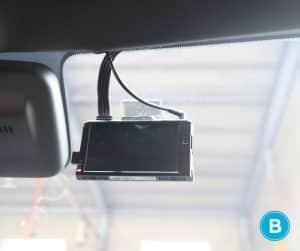
When you hear “black box data” do you automatically envision plane crashes or catastrophic accidents?
Yes, black box data does play a role in those events, but did you know basic semi-trucks and commercial vehicles also carry black boxes? While no longer called a black box (they’re now labeled as Electronic Logging Devices or ELDs) they still perform the same role: recording information.
What is an Electronic Logging Device?
Electronic Logging Devices, or ELDs, are the modern-day equivalent of the “black boxes” of the past. These systems are comprised of several components, and each performs a role in recording the needed “black box data.”
ECMs
ECMs (Electronic Control Modules) are integrated with a truck’s engine. These “computers” are, essentially, what run engines in current vehicle models. This includes large truck engines. It’s made of multiple sensors that connect to the computer, and keeps track of:
- fuel injection timing
- function of the truck’s transmission
- the status of the anti-lock braking system
- traction control
- engine malfunctions
ELDs
While ECM’s monitor a truck’s engine function, Electronic Logging Devices (ELDs) monitor the performance of the driver. In the past, truck drivers were required to keep their driving logs by hand, but today, trucks are equipped with technology to assist in the task. Distance traveled, hours on the road, etc. are recorded digitally, holding drivers accountable and ensuring compliance with FMCSA regulations. While not recording accidents or poor driving habits, ELDs are still an important contributor to a truck’s black box data.
Event Data Recorders
This is likely what you pictured when we mentioned “black box data” above, and generally speaking, it is. Event Data Recorders are responsible for detecting out-of-the-ordinary activity (“events”) and recording data about these events. This data can include, but is not limited to:
- sudden or extreme braking

Drivers are accountable when their truck records black box data about their habits!
- deceleration
- deployment of the truck’s airbags
- engagement of seatbelt tension
- sharp or hard turns
- warnings or malfunctions within the truck’s operating systems
Basically, if the truck’s sensors are alerted to any sudden changes that don’t fit the usual parameters of operation, it will send up a warning and record the moments (and events) during the period immediately afterward.
How does black box data affect my truck accident case?
In a commercial truck accident, black box data, or ELD data in today’s trucks, plays a big part in backing up a victim’s claim. When you’re in an accident with a semi-truck, you are going up against not just an at-fault driver, but (in many cases) a trucking company and their insurance provider. The Florida Department of Highway Safety and Motor Vehicles (FLHSMV) has a long list of ELD regulations for commercial trucks participating in interstate and intrastate commerce. Victims only care about one: who does black box data belong to?
In Florida, black box data or ELD information belongs to the vehicle’s owner. In commercial truck cases, the truck’s owner (usually a trucking company or major corporation) owns the data about your accident. This could be detrimental to your case as these companies regularly try to override or erase the data to minimize accountability and damages. This is a huge loss to victims, as ELD data provides objective information about the collision, assistance in determining fault, and scientific evidence if your case goes to court.
How, then, can a victim (or their legal representative) access this crucial information before companies erase it?
How does a lawyer access black box data about my truck accident?
After a crash with a commercial vehicle or semi-truck, victims face extensive injuries and sizeable damages. As some of Tampa Bay’s leading truck accident attorneys, Brooks Law Group is your legal advocate, fighting for your best interest. Advocacy includes securing black box data and preserving the important information it holds. How?
Consent of the owner.
Ultimately, we would prefer to have the owner of the black box surrender the data to our team. While not the norm, this scenario makes your case much smoother and less stressful for all involved.
An order from the court.
As your Lakeland truck accident attorneys, we can request court orders, giving us the legal authority to access and retrieve any data about your accident.
Investigation by the insurance company.
While this varies from state to state and depends on the insurance provider in question, insurance companies can sometimes retrieve black box data during their investigations of the accident.
Regardless of how we are (legally) able to preserve ELD data in your truck accident case, you can count on the team at Brooks Law Group to build a solid case based on facts, accident reconstruction, expert witnesses, and your ultimate best interest. We specialize in large truck and commercial vehicle accident cases, giving victims support and peace of mind during this difficult time. After an accident, don’t navigate the confusing and stressful legal journey alone. Call us for your free consultation and experience the Brooks Law Group difference. We’re never too far away, with offices in Tampa, Winter Haven, Lakeland, and the surrounding communities.
When you need a team to fight big companies, big insurance providers, and the aftermath of big truck accidents, Look to Brooks.












